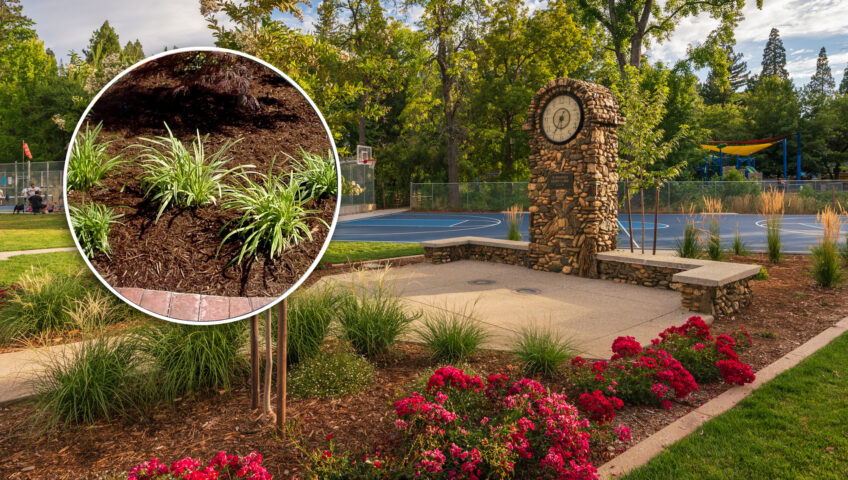Creating a water-wise landscape is environmentally responsible and practical in regions with limited water resources. Efficient water use in landscaping involves understanding when and how much to water, grouping specific plants, and finding your right irrigation needs. This guide provides insights into water-wise practices for a thriving and sustainable landscape.

Understanding Water Needs:
- Water Source – You will first need to identify what type of water you are receiving. NID/city-treated water, well water, and raw water are the three types of water you may have in the Nevada County/surrounding area.
- Plant Selection – Choose native and drought-tolerant plants suited to your region's climate. These plants are adapted to local conditions, requiring less water to thrive. Though native plants are most adaptable to low-water usage, there is a huge variety of drought-tolerant plants in our Mediterranean climate.
- Grouping Plants by Water Needs – Group plants with similar water requirements together. This allows you to tailor irrigation to specific zones, avoiding overwatering or underwatering and giving each group of plantings their required irrigation needs.
- Mulching – Apply a thick layer of mulch around plants to reduce evaporation, suppress weeds, and regulate soil temperature, to help retain moisture. This is essential for water-wise landscaping in our area.
Smart Irrigation Practices:
- Early Morning or Late Evening – Watering during the early morning or late evening minimizes evaporation, ensuring more water reaches the plant roots.
- Weather Conditions – Adjust watering frequency based on weather conditions. During cooler periods or rainy seasons, reduce irrigation to prevent waterlogging.
- Drip Irrigation – Utilize drip irrigation systems to deliver water directly to the base of plants, minimizing water loss through evaporation. Drip irrigation is the most efficient and cost-effective way to irrigate your landscape.
- Irrigation controllers – Install irrigation controllers and adjust them seasonally to align with changing water needs. This ensures consistent and efficient watering.
- Irrigation Maintenance – Check irrigation systems for leaks, clogs, or damage. Properly maintained systems ensure water is distributed evenly and efficiently.
Designing a landscape with water-efficient principles
Creating a water-wise landscape requires a combination of thoughtful plant selection, efficient irrigation practices, and a keen understanding of local weather patterns. By implementing these strategies, you not only conserve water but also foster a resilient and thriving outdoor environment. Remember that a water-wise landscape is a dynamic system that responds to seasonal changes and evolving plant needs. Regular observation and adjustments will contribute to the long-term sustainability of your landscape.

